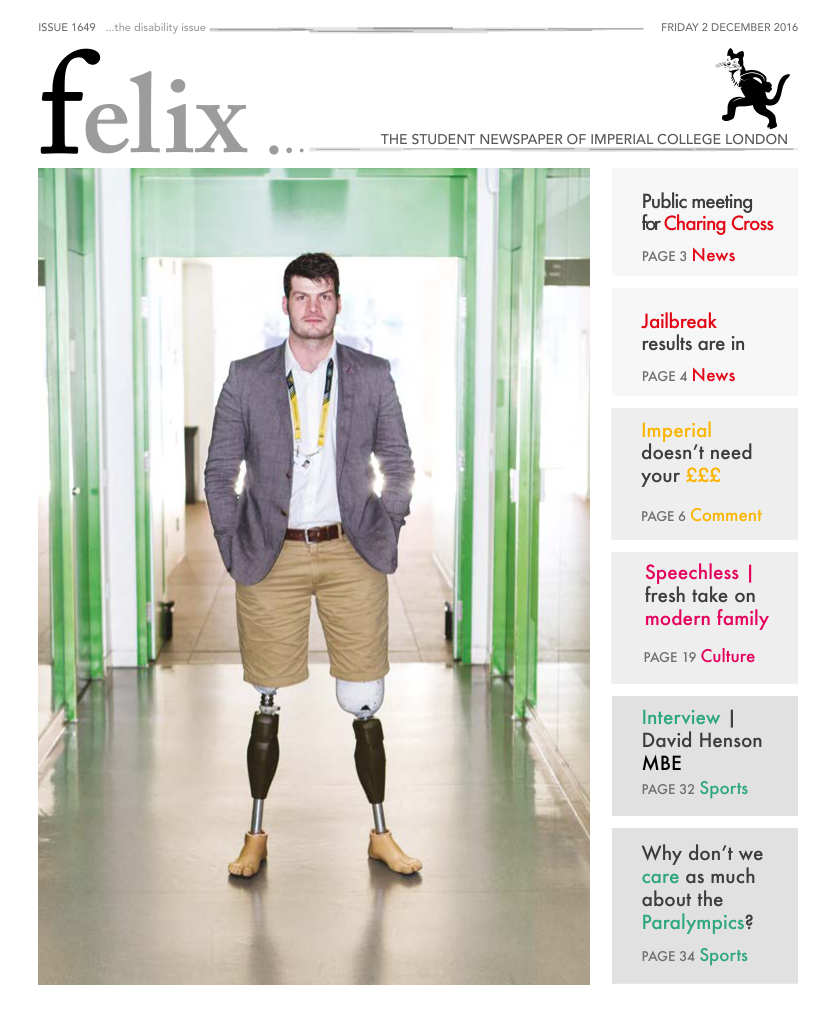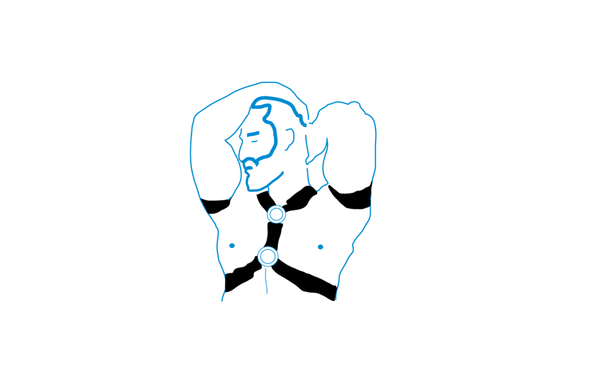Disabled people are not sexless
Though we’re often led to believe that having a disability automatically leads to a sexless existence this couldn’t be further away from the truth. Through the veil of complexities and social awkwardness what often awaits is just another sexual being.

Life is hard, and finding our way through the labyrinth of dating, relationships, and sex is one of the hardest and most formidable tasks we face as millennials. One thing that’s usually a given is that we all like sex (unless you’re asexual, which is totally okay, or you make the choice not to have sex for whatever reason (whether it’s because it causes you pain or mental turmoil, or because you believe that it is an affront to God), which is also totally okay). But when it comes to hunting for a potential mate (or mates), we often have a very narrow view of who fits into our dating pool.
And I’m not talking about dating someone out of your league, or trying to break that racial bias that we so vehemently deny. I’m referring to the desirability of people with disabilities. As well as the physical or mental problems associated with their disability, disabled people also have to face social complexities, one of which is the stigmatisation of their condition. This stigma can come in many forms, but one of its manifestations is in an inability to view disabled people as sexual beings.
In general, the sexual desires of those with disabilities tend to be overlooked because they have so many other things to worry about, and because the sexuality of those with disabilities is not visible or portrayed in the media. But this isn’t to say that they don’t have the same urges and needs as able-bodied folks. And moreso, it doesn’t mean that they aren’t having great sex. In the same way that we make adjustments for other things in our life, like leaving time to commute to work, or putting a towel down before having sex when Aunt Flo is in town, depending on the nature of each person’s disability, some changes may need to be made. Sounds like it could be a lot of work, but really this doesn’t have to be any more of a big deal than remembering that Nancy isn’t into butt-stuff.
I’ve known people to be put off having sex with disabled people because it can be complicated, intimidating, and can require forward planning. Certainly for those having sex with a person with severe physical disabilities for the first time, there can be a lot of anxiety. But it needn’t be something to worry about – it’s not like anyone is going to break like delicate porcelain as soon as you touch them (if they are likely to, they’ll warn you), and their priority is probably going to be for you both to get off, so they’ll probably make the hows and whys and what-not-to-dos pretty clear as you go.
There’s also the delicate issue of attraction. Attracting someone for sex becomes more of a challenge, because it means not only looking for someone interested in someone of your gender and personality, but also someone who doesn’t see the disability as a problem, or (ugh) fetishise it. It can be harder to pick people up in a bar or club, and someone with a disability can quite often be ruled out on dating websites because there are so many other people it would be easier to date. And this is unfair.
Disabled people often have to work extra hard to prove themselves as sexual beings, exaggerating their sexuality and emphasising their sexual identity, just to be given the same level of consideration as able-bodied people. It can be immensely frustrating, wanting to experience the rawest of human desires with someone, but being held back by the way that you are perceived. It can be hurtful to be rejected for no reason other than the inconvenience of a minor physical obstacle.
As a society, we need to break away from the subconscious idea that phenomenal sex is a privilege of the able-bodied. The best experiences often come from breaking away from our narrow view of who we are attracted to, whether that means being open to someone of a different gender, race, or number of limbs. We’re all struggling through the existential angst of our modern, soulless world, so let’s bond over that and try not to create additional barriers to having the sensational orgasms we all deserve.









